 Now that probably sounds like a ridiculous title, but bear with me. What I want to talk about is how to build that most elusive of companies – a $1bn B2B technology business. This is go big or go home, part 2.
Now that probably sounds like a ridiculous title, but bear with me. What I want to talk about is how to build that most elusive of companies – a $1bn B2B technology business. This is go big or go home, part 2.
The way I’ve always seen it, enterprise software companies are much more execution-focused and much less luck-based than others. There’s always an element of luck, and there’s always a huge element of execution, but the balance is slightly different compared to say a consumer tech startup. That was my main reason for starting Ometria – the market opportunity is clear, and what’s left is exceptional execution – basically, us not screwing it up.
It was interesting to read here that B2B unicorns deliver more value per dollar invested, a great opener to any future VC discussions. The fact that it takes 8 years on average to get to an exit, less so. And of course, neither is the fact that not a single unicorn has come from outside of the US (although that’s an issue with the sample, as well as the actual global distribution of unicorn sightings..)
What was most interesting to me is that although I’m heavily involved in the technology space, I had not heard of the majority of the B2B companies on that list. The next obvious step was to do some research on all of them to better understand their products, business models, and precisely what was so special about them. Learning from the best has always worked well for me, and this was a great opportunity to do more of it. And since I was doing it, I figured that I would draw some conclusions and hopefully my findings would make for an interesting blog post – so let me know what you think.
1. Workday
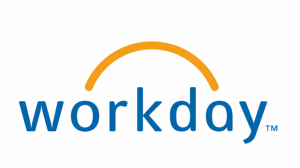 The largest of all the B2B unicorns, and yet one I had never heard of, Workday provides enterprise business management software – tools for huge companies to manage and analyse the performance of their workforce. It is the epitome of an enterprise SaaS company, signing multi-year contracts, booking the revenue upfront, and yet still not being profitable even after an exit and a $10bn+ valuation. Most interestingly, its first investors Greylock Partners have taken the company through most of the rounds, and alongside this they were able to pull in large strategic investors such as Jeff Bezos. The CEO and Founder had previously been the CEO of a giant ERP company, so understood exactly how a company in this space should be run, and what functionality was most needed by the market.
The largest of all the B2B unicorns, and yet one I had never heard of, Workday provides enterprise business management software – tools for huge companies to manage and analyse the performance of their workforce. It is the epitome of an enterprise SaaS company, signing multi-year contracts, booking the revenue upfront, and yet still not being profitable even after an exit and a $10bn+ valuation. Most interestingly, its first investors Greylock Partners have taken the company through most of the rounds, and alongside this they were able to pull in large strategic investors such as Jeff Bezos. The CEO and Founder had previously been the CEO of a giant ERP company, so understood exactly how a company in this space should be run, and what functionality was most needed by the market.
2. Service Now
 Another huge one that I’d never heard of – these guys provide SaaS based IT service management. Apparently that’s a thing. I wish I had it – people would stop asking me to fix their printer.. It was founded by an ex-CTO of a huge similar company, who had decided to build a PaaS tool and then left his previous role to commercialise this concept. It took a year and a team of his friends to turn this into a business. After 12 beta clients and $2.5m of investment they were ready to scale, and five years into the business they became the fastest enterprise IT company to get to $50m in revenues.
Another huge one that I’d never heard of – these guys provide SaaS based IT service management. Apparently that’s a thing. I wish I had it – people would stop asking me to fix their printer.. It was founded by an ex-CTO of a huge similar company, who had decided to build a PaaS tool and then left his previous role to commercialise this concept. It took a year and a team of his friends to turn this into a business. After 12 beta clients and $2.5m of investment they were ready to scale, and five years into the business they became the fastest enterprise IT company to get to $50m in revenues.
3. Splunk
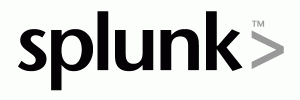 Big Data analytics. Now we’re talking. This is a highly scalable real-time data aggregation and analysis tool, with reporting and visualisations layered over the top. Funded with $40m, the company became profitable 6 years after founding, and had an IPO 3 years later. There were three co-founders, including the CEO who was previously the CEO of a tech company which was acquired by Oracle, and the senior developer who was previously a senior developer at Sapient, and has now gone on to found his own new company.
Big Data analytics. Now we’re talking. This is a highly scalable real-time data aggregation and analysis tool, with reporting and visualisations layered over the top. Funded with $40m, the company became profitable 6 years after founding, and had an IPO 3 years later. There were three co-founders, including the CEO who was previously the CEO of a tech company which was acquired by Oracle, and the senior developer who was previously a senior developer at Sapient, and has now gone on to found his own new company.
4. Palantir
 One of my favourite companies, mainly because of the nature of the product, but also because of the style of funding. Palantir integrates structured and unstructured data and allows secure collaboration to use this to search, discover and manage knowledge – it’s used by counter-terrorism forces, fraud investigators, and cyber analysts. Even more interestingly, it has five co-founders, one of which is Peter Thiel who invested a huge amount to get the company off the ground – a founder-led seed round 10x the usual amount. Since then the company has taken hundreds of millions in funding, is not yet profitable, but is close to a successful IPO.
One of my favourite companies, mainly because of the nature of the product, but also because of the style of funding. Palantir integrates structured and unstructured data and allows secure collaboration to use this to search, discover and manage knowledge – it’s used by counter-terrorism forces, fraud investigators, and cyber analysts. Even more interestingly, it has five co-founders, one of which is Peter Thiel who invested a huge amount to get the company off the ground – a founder-led seed round 10x the usual amount. Since then the company has taken hundreds of millions in funding, is not yet profitable, but is close to a successful IPO.
5. FireEye
 A global network security company – Fire Eye provides automated threat forensics and dynamic malware protection. It’s “The Neuromancer” personified. If you’re attacked by a botnet, you need these guys. They have raised money from the hottest VCs in the US – Sequoia, NW Venture Partners, etc. The founder was an engineer from Sun Microsystems, and got Sequoia investment right from the start, having invented the technologies behind the company’s main product line. Interestingly in 2012 FireEye announced a partnership with Splunk, showing that the world of large-scale B2B tech is a small one.
A global network security company – Fire Eye provides automated threat forensics and dynamic malware protection. It’s “The Neuromancer” personified. If you’re attacked by a botnet, you need these guys. They have raised money from the hottest VCs in the US – Sequoia, NW Venture Partners, etc. The founder was an engineer from Sun Microsystems, and got Sequoia investment right from the start, having invented the technologies behind the company’s main product line. Interestingly in 2012 FireEye announced a partnership with Splunk, showing that the world of large-scale B2B tech is a small one.
6. Tableau
 Another one that I’ve come across quite a few times, Tableau is a business intelligence and analytics company. Founder by a Professor and a Ph.D student at Stanford University, the company specialises in visualisation techniques for exploring and analysing databases. Taking in much less capital, with only a $5m Series A and a $10m Series B, the company successfully went public this year with the NYSE stock symbol “DATA”. Awesome.
Another one that I’ve come across quite a few times, Tableau is a business intelligence and analytics company. Founder by a Professor and a Ph.D student at Stanford University, the company specialises in visualisation techniques for exploring and analysing databases. Taking in much less capital, with only a $5m Series A and a $10m Series B, the company successfully went public this year with the NYSE stock symbol “DATA”. Awesome.
7. Palo Alto Networks
 Founded by the main developer of the first intrusion prevention system, Palo Alto Networks solves the problem of employees not being able to safely use modern applications without a granular firewall. He was one of the early employees at Check Point Software in the 1990s where he wrote the world’s first commercial firewall. Having felt that his best ideas were being blocked by incompetent management he decided to do it himself – and he did. Based on his reputation as the best guy in the industry, Greylock and Sequoia gave him $250k to come up with his next product. This was followed by tens of millions more, and a huge IPO.
Founded by the main developer of the first intrusion prevention system, Palo Alto Networks solves the problem of employees not being able to safely use modern applications without a granular firewall. He was one of the early employees at Check Point Software in the 1990s where he wrote the world’s first commercial firewall. Having felt that his best ideas were being blocked by incompetent management he decided to do it himself – and he did. Based on his reputation as the best guy in the industry, Greylock and Sequoia gave him $250k to come up with his next product. This was followed by tens of millions more, and a huge IPO.
8. Rocket Fuel
 Rocket Fuel does Big-Data driven programmatic advertising. One of the hottest sectors at the moment, driving somewhat ridiculous valuations. These guys have built a machine-learning, artificially intelligent, programmatic media-buying platform, and are currently the fastest growing technology company in the US. 208897% revenue growth in 4 years. What?! Their main investors, Mohr Davidow Ventures, followed on through each round, and others involved were Northgate, Summit Partners and Nokia. The founder had previously built ad-tech for large companies like Yahoo and IBM – and has a bachelor’s, master’s and doctorate in computer science from Stanford. He’s almost replaced Elon Musk as a role model. But not quite..
Rocket Fuel does Big-Data driven programmatic advertising. One of the hottest sectors at the moment, driving somewhat ridiculous valuations. These guys have built a machine-learning, artificially intelligent, programmatic media-buying platform, and are currently the fastest growing technology company in the US. 208897% revenue growth in 4 years. What?! Their main investors, Mohr Davidow Ventures, followed on through each round, and others involved were Northgate, Summit Partners and Nokia. The founder had previously built ad-tech for large companies like Yahoo and IBM – and has a bachelor’s, master’s and doctorate in computer science from Stanford. He’s almost replaced Elon Musk as a role model. But not quite..
9. Nicira
 A company doing network virtualisation technology and software-defined networking, Nicira had a billion-dollar exit within five years. The technology was developed by a Stanford student and his doctoral advisors, who then spun off the technology into a business. Initial funding from Andreessen and Lightspeed meant they were fully capitalised throughout their short journey to a trade sale to VNWare.
A company doing network virtualisation technology and software-defined networking, Nicira had a billion-dollar exit within five years. The technology was developed by a Stanford student and his doctoral advisors, who then spun off the technology into a business. Initial funding from Andreessen and Lightspeed meant they were fully capitalised throughout their short journey to a trade sale to VNWare.
10. Marketo
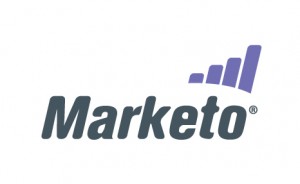 A perfect example, given what we are doing at Ometria. Founded by three experts in CRM who had all worked at Epiphany, Marketo is a marketing automation company – a hot space delivering a number of IPOs at the moment. Taking $100m in funding to get to their billion dollar IPO. This is not the first IPO for the founder either. And, of course, he went to Stanford. Investors included Storm Ventures, InterWest Partners who followed on after the initial seed round, and Battery Ventures to take them over the line.
A perfect example, given what we are doing at Ometria. Founded by three experts in CRM who had all worked at Epiphany, Marketo is a marketing automation company – a hot space delivering a number of IPOs at the moment. Taking $100m in funding to get to their billion dollar IPO. This is not the first IPO for the founder either. And, of course, he went to Stanford. Investors included Storm Ventures, InterWest Partners who followed on after the initial seed round, and Battery Ventures to take them over the line.
11. Yammer
 Yammer is the enterprise social network. SNaaS as it were. Launched in 2008 and sold to Microsoft in 2012 for the obligatory billion, the company was founded by a former PayPal executive. Revenue then doubled every quarter, and 80% of Fortune 500 companies started to use it. The company took $150m to get to this point, from some serious angel investors like Ron Conway, and funds like Founders Fund, Goldcrest and Emergence Capital.
Yammer is the enterprise social network. SNaaS as it were. Launched in 2008 and sold to Microsoft in 2012 for the obligatory billion, the company was founded by a former PayPal executive. Revenue then doubled every quarter, and 80% of Fortune 500 companies started to use it. The company took $150m to get to this point, from some serious angel investors like Ron Conway, and funds like Founders Fund, Goldcrest and Emergence Capital.
12. Meraki
 A different university for once, Meraki is a company selling products for large-scale wired and wireless networks, started by two PhD students from MIT. It was founded in Mountain View, and attracted funding from Google and Sequoia. As part of the growth of the company they released a free wifi project that allowed 100,000 people in San Francisco to gain access to the internet. The same technology was then used for paid-for infrastructures across the world, and the company was acquired for over a billion by Cisco Systems.
A different university for once, Meraki is a company selling products for large-scale wired and wireless networks, started by two PhD students from MIT. It was founded in Mountain View, and attracted funding from Google and Sequoia. As part of the growth of the company they released a free wifi project that allowed 100,000 people in San Francisco to gain access to the internet. The same technology was then used for paid-for infrastructures across the world, and the company was acquired for over a billion by Cisco Systems.
13. Box
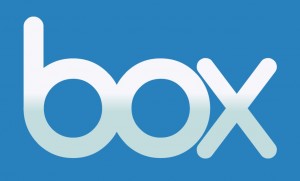 Gotta love the fact that they have the domain box.com. A few weeks ago at Dublin Web Summit, Aaron Levie, the founder, talked about how this generation of enterprise software companies measure the interface of their product by the same yardstick as consumer software companies, and add to that a sales team and professional services. This is the perfect formula for building a B2B SaaS company – an inspiration for us at Ometria. Top-notch UI/UX, but with a clear sales strategy and solid engagement due to ongoing professional services. Box was seed funded by Mark Cuban, then raised from Draper Fisher, U.S Ventures and then many others including Andreessen Horowitz, SAP and Salesforce. Aaron Levie never finished his degree at SoCal, leaving it to start Box. Wise man..
Gotta love the fact that they have the domain box.com. A few weeks ago at Dublin Web Summit, Aaron Levie, the founder, talked about how this generation of enterprise software companies measure the interface of their product by the same yardstick as consumer software companies, and add to that a sales team and professional services. This is the perfect formula for building a B2B SaaS company – an inspiration for us at Ometria. Top-notch UI/UX, but with a clear sales strategy and solid engagement due to ongoing professional services. Box was seed funded by Mark Cuban, then raised from Draper Fisher, U.S Ventures and then many others including Andreessen Horowitz, SAP and Salesforce. Aaron Levie never finished his degree at SoCal, leaving it to start Box. Wise man..
14. Climate Corp
 This almost self-explanatory San Francisco company examines weather data and provides insurance to farmers so they can remain profitable even if climatic events alter their crop yields. Raising $60m so far from pretty much everyone – Khoshla, Google, Index, First Round, Atomico, they have quickly expanded both in the US and internationally. The insurance product is entirely automated, and makes payments when specific weather conditions occur. Prior to starting Climate Corp, the two founders worked at Google.
This almost self-explanatory San Francisco company examines weather data and provides insurance to farmers so they can remain profitable even if climatic events alter their crop yields. Raising $60m so far from pretty much everyone – Khoshla, Google, Index, First Round, Atomico, they have quickly expanded both in the US and internationally. The insurance product is entirely automated, and makes payments when specific weather conditions occur. Prior to starting Climate Corp, the two founders worked at Google.
15. Fusion.io
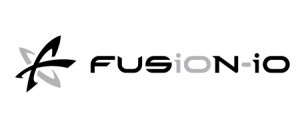 Last but definitely not least, Fusion.io is a flash memory product company which accelerates enterprise applications by overcoming the limitations of legacy architectures. Funded by VCs like Accel, Lightspeed, Andreessen and Samsung, and even Michael Dell personally, and with none other than Steve Wozniak as Chief Scientist, the company’s pedigree is as impressive as it comes. Most interestingly, a short time after the company had its $1bn+ IPO, the two original founders left and immediately raised $50m seed funding for their next company – Primary Data.
Last but definitely not least, Fusion.io is a flash memory product company which accelerates enterprise applications by overcoming the limitations of legacy architectures. Funded by VCs like Accel, Lightspeed, Andreessen and Samsung, and even Michael Dell personally, and with none other than Steve Wozniak as Chief Scientist, the company’s pedigree is as impressive as it comes. Most interestingly, a short time after the company had its $1bn+ IPO, the two original founders left and immediately raised $50m seed funding for their next company – Primary Data.
And that’s the list. So other than providing some rather immense inspiration for what can be achieved by going down this path, what else does it tell us?
Well firstly it tells us that you need a lot of money. There isn’t a single company in this list that had a few million in funding and made it big. So if you’re planning a B2B enterprise software company, plan for tens of millions in funding at the very least.
Secondly – that money needs to come from the right people. The same names keep propping up. Clearly that means that they are the best VCs out there, but having them involved is also a strong signal, and makes sure that you always have access to more capital as your growth continues.
And thirdly, it’s best to have gone to a pretty damn good university, researched a new technology, or run a similar-sized company in a similar space before. None of these founders were rookies with no idea, that lucked out. Either they invented something, or they’d done it before.
Now then. I wonder if that CEO role at Splunk is available..
----Find out more on the about Ivan Mazour page.
And watch Ivan Mazour's TEDx Talk - "Why we shouldn't be scared of sharing our personal data".

3 comments
Hi Ivan,
That’s a great summary of the largest B2B tech businesses.
An interesting background story about Workday is that its founder, Dave Duffield, founded PeopleSoft before it, which had a successful IPO, and he was still in charge when Oracle bought it in a hostile takeover for $10.1B. So, at 64, instead of enjoying retirement as a billionaire, he started Workday, making it an even bigger company than PeopleSoft (and probably one that Oracle can’t buy). So far, he is the only entrepreneur to build and exit 2 companies for $10B+ (although Jack Dorsey is getting close to achieving this).
That’s absolutely amazing. The billion dollar club isn’t enough any more, now it’s all about the ten-billion dollar club. What’s rarer than a unicorn? I love how in B2B, once you’ve identified a business model and learned how to build a successful company, you can just repeat that, backed up by a different product that’s relevant to the time and market. It’s genuinely a skill that you can build, rather than simple luck.
Adding to your point, I think with B2B startups is much easier to transfer your credibility and network from one startup to the next. When it comes to a large purchasing decision by an enterprise, the fact that you’ve built products of that scale before gives the buyer reassurance. And, of course, knowing all the VPs and CxOs in your target market certainly gives you an edge. With B2C products, track record doesn’t guarantee success (see Joost from the founders of Skype, or Airtime from Sean Parker and Shawn Fanning, or even Color). In the end, the consumers won’t care what you did before,